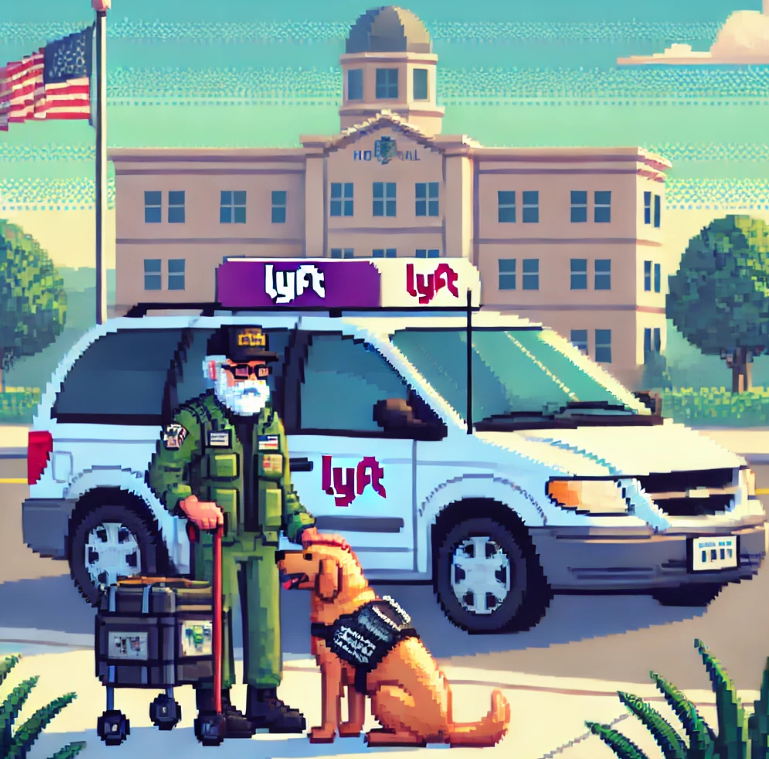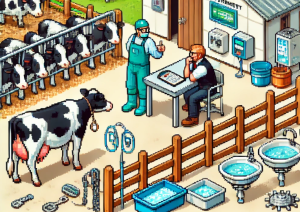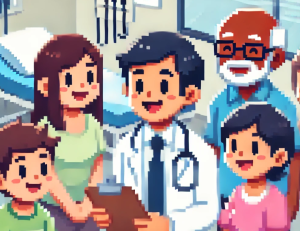
Veterans’ Lifeline: How Rideshare Transforms Access to Care
Imagine trying to navigate the complexities of life without reliable transportation. For many of us, it’s hard to picture, but for thousands of veterans experiencing homelessness, it’s a harsh reality. The inability to get from point A to point B isn’t just an inconvenience—it’s a barrier that can mean the difference between life and death. Enter the VA Rideshare program, a national initiative that has been quietly revolutionizing access to healthcare for veterans most in need.
Breaking Barriers to Care
Transportation is more than just a means to get somewhere—it’s a lifeline. For veterans experiencing homelessness, reliable transportation can mean accessing vital healthcare, securing stable housing, or even attending a crucial job interview. In a world where a missed medical appointment can lead to devastating consequences, the ability to reach care is critical. The VA Rideshare program, launched in 2020 and operating until May 2023, sought to address this exact issue.
Funded under the Johnny Isakson and David P. Roe, M.D. Veterans Health Care and Benefits Improvement Act, the program provided free, on-demand transportation for veterans to attend medical appointments, receive food, and access emergency shelters. But what does this mean for the veterans who used the service, and why should public health practitioners and researchers care?
The Findings: A New Chapter in Veteran Care
A recent study linked Lyft rideshare data to VA administrative records to understand who used the VA Rideshare program and how it impacted their use of healthcare services. The results were eye-opening.
The study found that veterans who used the Rideshare program were more likely to have psychiatric diagnoses and a higher number of urgent care visits than those who didn’t use the service. While this might sound alarming at first, it actually underscores the importance of the program: these veterans are among the most vulnerable, facing complex health challenges that make regular access to care essential.
What’s more, six months after their first use of the program, Rideshare users had more VA outpatient and inpatient visits and fewer missed appointments compared to their non-Rideshare-using peers. This is a big deal. It means that when transportation was no longer a barrier, veterans were more likely to follow through with their healthcare, leading to better outcomes. In fact, Rideshare users had between three to eight more program visits over six months than non-users.
These numbers tell a powerful story—one of increased access, better engagement with healthcare, and a system that worked for those who needed it most. For public health practitioners and researchers, these findings provide a compelling case for the broader adoption of transportation assistance programs as a means to improve health outcomes.
Why Should We Care?
This research is not just about a transportation program; it’s about rethinking how we approach care for vulnerable populations. Transportation is a social determinant of health—a factor that significantly influences one’s health outcomes. When we remove barriers like transportation, we open the door to better health, greater stability, and improved quality of life.
For veterans, especially those experiencing homelessness, the stakes are incredibly high. Lack of transportation can lead to missed medical appointments, delayed care, and, ultimately, a decline in health. The VA Rideshare program’s success shows that when we invest in solutions that address these fundamental needs, the impact is profound.
But the implications go beyond just veterans. As our population ages and more people face challenges related to mobility, programs like these could be the key to ensuring that everyone, regardless of their circumstances, has access to the care they need.
The VA Rideshare program also offers valuable insights for future research and policy-making. The findings suggest that similar transportation interventions could be beneficial across various populations, particularly those facing economic hardships or living in rural areas with limited access to public transportation.
Stories Behind the Statistics
Beyond the numbers, it’s crucial to remember that each ride represents a person—a veteran who needed help and found it. Take, for example, a veteran who used the Rideshare program to attend regular mental health appointments. Without the program, they might have missed these appointments, leading to a deterioration in their mental health and potentially a return to homelessness. Instead, reliable transportation allowed them to stay on track with their treatment, maintain their health, and move toward a more stable life.
Or consider the veteran who used the program to attend a job interview, which ultimately led to employment and the opportunity to transition out of homelessness. These stories, while not captured in the study, are the real-world outcomes of removing barriers to care.
Join the Conversation
The success of the VA Rideshare program raises important questions about how we can best support our most vulnerable populations.
- Have you or someone you know ever faced transportation barriers that affected your ability to access healthcare or other essential services?
- How do you think programs like VA Rideshare can be adapted to serve broader populations, especially those in rural or underserved areas?
Share your thoughts in the comments or on social media. Your insights could help shape the future of healthcare access.
Conclusion
The VA Rideshare program may have ended, but its legacy continues. It proved that when we address fundamental barriers like transportation, we can make a real difference in people’s lives. For veterans who have given so much for our country, ensuring they have access to the care they need is not just a service—it’s a responsibility.
This study serves as a call to action for policymakers, healthcare providers, and researchers alike: let’s remove the barriers, one ride at a time, and ensure that everyone, especially our veterans, has the chance to access the care they deserve.
Be Part of the Change – Get Weekly Updates!
Stay informed and connected. Subscribe for free and share this blog to make a difference in public health with others. If you liked this blog, please share it! Your referrals help This Week in Public Health reach new readers.



